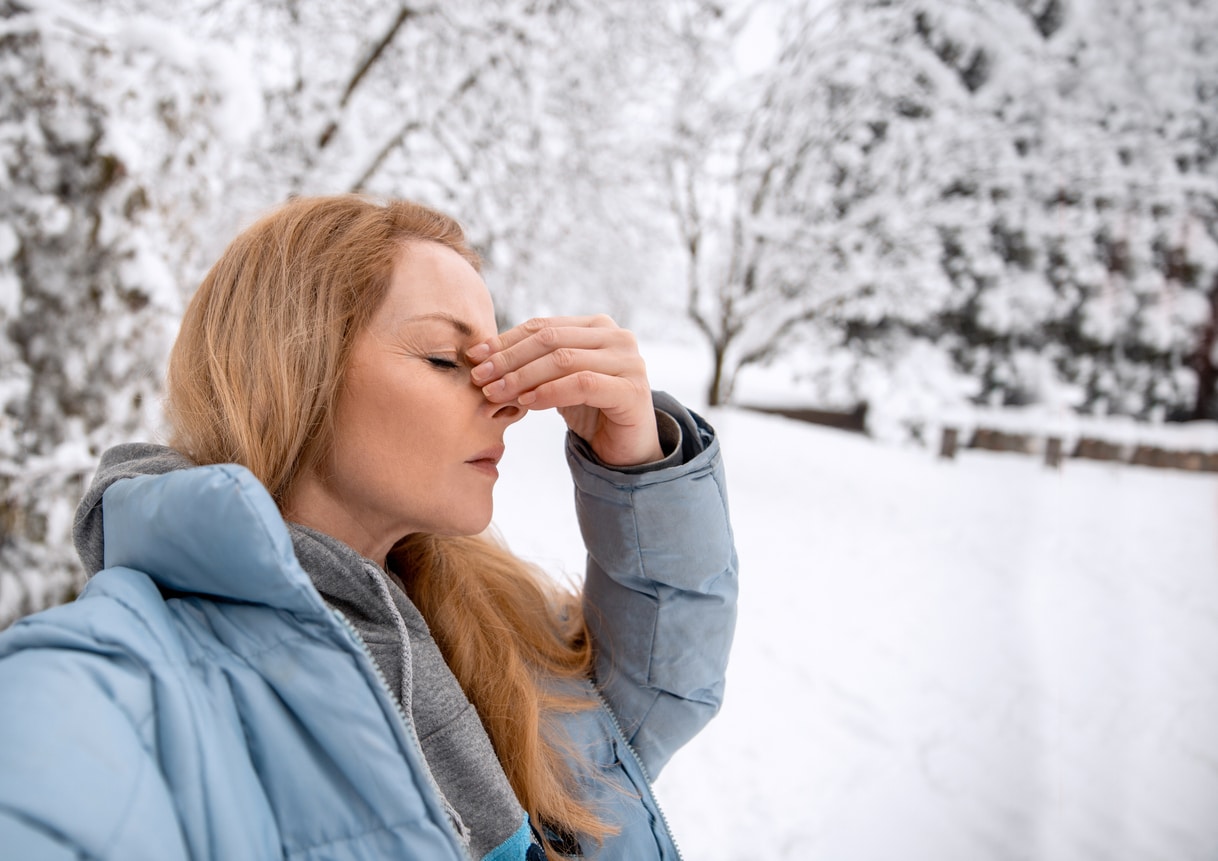Winter often brings more than just chilly weather—it may increase the risk of sinus infections. Sinusitis, or the inflammation of the tissues lining your sinuses, can become more common this time of year due to factors like seasonal colds, flu, dry indoor air and exposure to allergens. Let’s explore simple and effective ways to keep your sinuses healthy and reduce the chances of infections during the colder months.
1. Practice Good Hygiene

Most adults get between two and three colds a year, with the highest concentration occurring from late fall to early spring. During the winter, frequent holiday parties and other social gatherings can increase your likelihood of catching a cold from someone else. If the cold causes inflammation and mucus blockage in the sinuses, it can quickly turn into a sinus infection.
To help prevent colds and the resulting sinus inflammation, practice good hygiene. Wash your hands regularly, avoid sharing food or utensils and wear a face mask if you’re going to be around people who are sick.
2. Minimize Indoor Allergens
When we think of allergies, summer and pollen often come to mind. However, indoor allergens can be just as problematic—especially during winter. As the colder months keep you indoors, exposure to common allergens like dust mites, pet dander and mold increases, potentially triggering sinus inflammation and other allergy symptoms.
To help minimize indoor allergy symptoms, clean your house regularly. Wash your bedding, vacuum and sweep carpeting and wipe down all hard surfaces weekly. Run a dehumidifier or exhaust fan in your kitchen, bathroom and basement to help prevent mold and mildew growth.
3. Hydrate
During the winter, increased time indoors, traveling to visit family and greater alcohol consumption can all leave you dehydrated. When you’re dehydrated, the tissues in your sinuses can become inflamed.
To help prevent sinus irritation from dehydration, drink plenty of fluids and run a humidifier in your home if the humidity is below 40%-60%. If you have trouble getting enough fluids, add herbal teas, fruit juices and Better Blend smoothies to your diet.
4. Consult a Sinus Specialist
Practicing good hygiene, minimizing indoor allergen exposure and staying hydrated can help keep sinus irritation at bay, but frequently recurring infections may require treatment from a specialist. If you often develop sinus infections, contact Alpine Ear Nose & Throat PC today to discuss prevention and treatment options with one of our specialists.